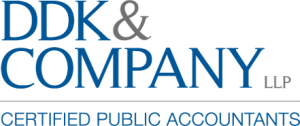
House Approves Major Tax Reform Bill: Key Provisions for Individuals and Businesses
On May 22, 2025, the House of Representatives approved by a 215-214 vote the “One Big Beautiful Bill”, a comprehensive package of tax proposals aligned with President Trump’s campaign promises. The bill includes several provisions impacting both businesses and individuals, including the following key measures:
Key Provisions Made Permanent from the 2017 Tax Cuts and Jobs Act (TCJA):
• Individual Tax Brackets & Rates:
Makes permanent the modified federal income tax brackets and lower tax rates established by the TCJA. An additional year of inflation adjustment is added for all brackets except the top 37% bracket.
• Standard Deduction:
Permanently retains the nearly doubled standard deduction created by the TCJA, with an extra year of inflation adjustment. For tax years 2025 through 2028, the deduction is further increased by:
o $1,000 for single filers
o $1,500 for heads of household
o $2,000 for married couples filing jointly
• Child Tax Credit:
Permanently maintains the $2,000 child tax credit and increased income phase-out thresholds, as well as the non-refundable credit for non-child dependents. Additionally:
o The credit amount is indexed to inflation starting after 2026
o The credit is increased to $2,500 per child for tax years 2025 through 2028
• Qualified Business Income Deduction (Section 199A):
Makes the QBI deduction permanent for tax years beginning after December 31, 2025, and increases the deduction rate from 20% to 23%.
• Estate and Gift Tax Exemption:
Permanently extends and increases the estate and lifetime gift tax exemption to $15 million for single filers ($30 million for joint filers) in 2026, with future indexing for inflation.
• Miscellaneous Itemized Deductions:
Permanently eliminates miscellaneous itemized deductions.
• Alternative minimum tax (AMT):
Makes permanent the increased AMT exemption and phase-out thresholds.
Other Notable Provisions:
• SALT Deduction Cap Increase:
Raises the cap on state and local tax (SALT) deductions to $40,000 starting in 2025. The cap is phased out for taxpayers earning between $500,000 and $600,000 and reverts to the $10,000 TCJA limit thereafter.
• Pass-through entity tax (PTET) elections:
The bill aims to limit PTET workarounds for SALT by making such payments for many entities nondeductible beginning in 2026.
• No Tax on Tips:
Provides an above-the-line deduction for qualified tips received in occupations where tipping is customary. Available for tax years 2025 through 2028, subject to earned income limitations.
• No Tax on Overtime:
Allows an above-the-line deduction for qualified overtime pay for tax years 2025 through 2028, subject to earned income limitations.
• Enhanced Senior Deduction:
Introduces a $4,000 deduction for seniors (age 65+) with modified adjusted gross income below $75,000 for single filers or $150,000 for joint filers. Available to both itemizers and non-itemizers for tax years 2025 through 2028.
• Car Loan Interest Deduction:
Creates an above-the-line deduction of up to $10,000 for qualified passenger vehicle loan interest. The deduction begins to phase out at $100,000 for single filers and $200,000 for joint filers. The vehicle must be assembled in the U.S., and the deduction applies from 2025 through 2028.
• Limitation on tax benefit of itemized deductions:
Permanently repeals the Pease limitation and replaces it with a new overall limitation on itemized deductions. This provision caps the value of each dollar of itemized deductions at $0.35, in most cases, and applies only to taxpayers in the highest individual income tax bracket. This new limitation is effective for taxable years beginning after December 31, 2025.
• Above-the-Line Charitable Deduction:
Allows non-itemizing taxpayers to deduct up to $150 (single) or $300 (joint) in charitable cash contributions for tax years 2025 through 2028.
• Business loss carryforwards:
The bill amends Sec. 461(l)(2) to provide that any excess business loss of a noncorporate taxpayer is carried forward as an excess business loss rather than being treated as a net operating loss (NOL).
• 100% Bonus Depreciation:
Permits immediate expensing of 100% of the cost of qualified property acquired between January 20, 2025, and January 1, 2030.
• Domestic Research and Experimental Expenditures:
Allows immediate deduction of qualified domestic R&E expenditures incurred from 2025 through 2029.
• Business Interest Deduction Expansion:
Increases the cap on business interest expense deductions for tax years beginning after December 31, 2024, and before January 1, 2030.
• Special Depreciation for Qualified Production Property:
Allows full expensing of certain new factories, improvements to existing facilities, and other qualified production structures.
• 1099 Reporting Thresholds:
Increases reporting thresholds from $600 to $2,000 for payments made during 2025.
• Termination of Clean Energy Tax Credits:
Phases out or eliminates current clean energy tax credits.
• Tax Favored Account for Children:
Designed to benefit children under age 8. Eligible new-born children would be given a one-time $1,000 deposit from the US Treasury to help fund the account. Contribution limits into the account would be $5,000. Earnings grow tax-deferred, and qualified withdrawals are taxed at the long-term capital-gains rate.
• Increased Tax Rate on Net Investment Income of Certain Private Foundations:
Increasing the private foundation excise tax on net investment income for foundations with assets of $50 million or more. Rates will start at 2.78% and increase to 10 % depending on total assets.
Please note: As the bill advances, it remains subject to potential changes during Senate review. The Rubin Report and DDK News will continue to monitor and provide detailed updates as the situation develops. Stay tuned for further information.
We can help
If you have any questions regarding these tax provisions and how it could affect you or your business, feel free to contact your DDK partner.
